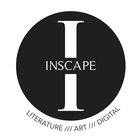Teaching |
Advising |
 Click to see a student's "Poem in Action." Click to see a student's "Poem in Action."
Courses I've had a long career of teaching a variety of creative writing, literature, and general education courses in a variety of contexts. As an Assistant Professor of English at William Jewell College, I currently teaching the following courses in the English Department:
I also teach in Jewell's Oxbridge Honors Program in the Literature and Theory track. Oxbridge is modeled after the Oxford and Cambridge system of education; small group of students take weekly tutorials with faculty in various content areas. Much like graduate study, the program culminates in a series of comprehensive exams for which faculty write questions.
Pedagogical Interests
|
In addition to advising English majors, I advise the following:

Faculty Adviser, Inscape,
William Jewell College's Student Arts Magazine Inscape is the student arts magazine of William Jewell College. Appearing annually, we publish publish poetry, fiction, creative nonfiction, music, as well as visual and digital art in both a web and print copy. Since assuming the position of Inscape's faculty adviser, I have expanded the editorial board of Inscape to include students from across arts-related departments, facilitated the development of a website companion to our print issue in order to better showcase visual and digital art, and secured additional institutional funding via internal grants. Poetry and Creative Nonfiction Honors Project Adviser, William Jewell College I have directed three honors projects, two in poetry and one in creative nonfiction. At Jewell, honors projects are a year-long undertaking that mirrors the creation of a master's thesis as students produce both a body of creative writing (e.g., a poetry chapbook, a collection of essays) as well as a critical introduction. In the critical portion of their project, students position their work within the genre as well as within a constellation of model texts. As adviser, in addition to providing feedback on creative work, I suggest model texts and help students understand the nature of their project within the larger framework of the genre. I also assist students in considering the broader themes that emerge as they expand their writing in to a collection as opposed to a single essay or poem. Projects conclude with an oral defense in front of a faculty committee. All of the projects I've advised to date have been successful. Student Voices"Dr. Williams is honest about the quality of our work and gives us theoretical tools to understand what creative nonfiction is. She guides us enough to keep us going but not so much, so that we keep the freedom for exploring and creativity."
Student, Creative Nonfiction "She is dedicated to helping all students (far beyond English majors or those who are hard workers) pull meaning from their lives through poetry and also see new perspectives in others' experiences with the same medium. Dr. Williams came to understand, appreciate, and celebrate each student's 'poetic voice' and helped them develop this voice with specific and broad suggestions alike." Student, Creative Writing: Poetry "With Dr. Williams' encouragement and always helpful critiques and comments, I have been able to develop my voice and creative capacities. Workshops taught me how to give criticism constructively and to take it receptively and positively. Thank you! [...] I appreciate the diversity of the poets and conversations immensely. It is an essential thing for courses to partake in and I'm very appreciative that Dr. Williams started this conversation about diversity and awareness." Student, Advanced Poetry Workshop "Dr. Williams is an awesome professor and person. She made this CTI so much more than I thought it would be. She was welcoming and open to new ideas regardless of if she agreed and she never made anyone's opinions not count. She is extremely passionate about what she teaches and I think that is awesome. Her teaching style is awesome and her discussions were also very focused. Her essays were challenging but a good kind of challenge. Her feedback was always excellent and I knew here expectations from the beginning. This is by far my favorite CTI and she is one of my favorite professors after this class." Student, World Women's Literature "This is an excellent course and I feel that my understanding of how to navigate works of minority cultures has improved. I also learned the importance of carefully analyzing such texts and applying what I have learned to the world around me. I especially appreciated Dr. Williams' approach of connecting these texts to modern issues and contemporary cultural representations." Student, U.S. Minority Literature |